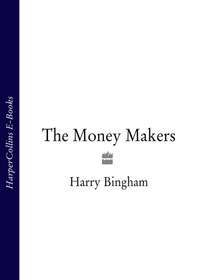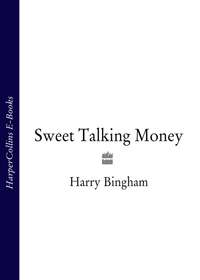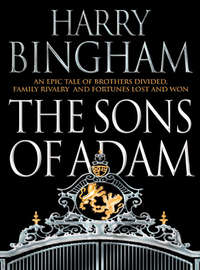
Полная версия
The Lieutenant’s Lover
The kettle boiled. She made tea, let it brew, then poured it, adding three spoonfuls of sugar. Rodyon took the cup with thanks. He had barely changed his posture since first sitting down, but she could see his tiredness slipping away, and he wore it now as a mask more than anything.
‘We’re seeing Pavel more and more at the Bureau of Housing,’ he said.
‘Yes.’
It was true. Because of Misha, Tonya had been at home very little. Pavel, never properly rooted since their mother had died, had taken to leaving home more and more. He often ended up at the Bureau of Housing, where his admiration for Rodyon had blossomed into something close to hero-worship.
‘He is useful. He runs a lot of errands for us.’
‘He’s a good boy.’
‘Yes… And when did he last wash, do you know?’
‘Wash? He washes every day.’
‘Face and hands, yes. I meant more than that. All over.’
Tonya shrugged. ‘He’s fourteen, nearly fifteen. You know what it’s like.’
‘This week? Last week?’
‘What do you care? He won’t wash in cold water and boiling enough water for a bath in this heat … well, he’s old enough to boil water for himself if he wants it.’
‘You didn’t always say that.’
‘He wasn’t always fifteen, or as good as.’
‘But the change came four months ago, didn’t it, Antonina Kirylovna?’
Tonya swallowed. Rodyon was creeping around to the real subject and she felt her mouth go strangely dry. Though she wanted to blame it on other things – the endless day outside, the light glittering from the city’s roofs and cupolas, the heat of the stove – she knew it was none of those things.
‘Maybe,’ she admitted.
‘Mikhail Ivanovich Malevich. Son of Ivan Ilyich Malevich. Ivan Ilyich was one of the country’s richest men. Not in the top fifty perhaps, but not so far outside either. Coal mines. Iron works. Land.’
‘They have none of that now.’
‘No.’
Rodyon stopped as though he’d finished. He finished his tea and pushed his cup away from him.
‘More?’ said Tonya.
‘Please.’
‘The sugar doesn’t come from father’s coal-stealing. It comes from Misha. The soup things too. He trades his family’s last few possessions. He is generous.’
‘Bourgeois sugar, eh?’
‘That’s one way to put it.’
‘Then I’ll have another spoonful.’
Tonya poured the tea and pushed it back at Rodyon. Her movement contained an ounce or two of anger and tea slopped over the rim of the cup. He ignored both the anger and the spillage.
‘His family’s last few possessions. What a piteous-sounding phrase!’
‘There’s no pity. It’s a simple fact.’
‘Is it? Really? That’s another insight of Marx’s. Facts aren’t necessarily simple, even the simplest ones. His father accumulated possessions by exploiting his workers. Each year, every year, men died underground in his coal mines. Others were cut to pieces in industrial accidents at his iron works. And he reaped the profit.’
‘He employed them. I don’t suppose conditions in his mines were worse than elsewhere.’
‘He gave them the lowest wage he could possibly pay them, you mean. Yes. And that wage wasn’t always enough to give his workers enough food, fuel, medicine or housing. Look at this rat-hole you live in. You have always counted yourself lucky to have it. How does it compare with Kuletsky Prospekt, eh? How does it compare with that? So: you say his family’s last few possessions, but if he stole the labour that allowed him to acquire them, then to whom, really, do those things belong?’
Tonya shrugged. ‘Who cares? In a few months, they’ll have nothing.’
Rodyon nodded, as though he agreed. He stood up. All at once, the lean tigerishness of his energy seemed to come rushing back. When before he had looked tired, now again, as usual, his face radiated an intense, challenging handsomeness, spoiled and completed by his broken nose. He paced the tiny apartment as though he felt cooped up in it. He leaned out of the open window, traced a line on a cupboard with the tip of his finger as though to check for dust, then came over to the stove and felt it for heat.
‘Good soup.’
‘Yes.’
‘The smell is almost the best part.’
‘Maybe.’
‘A meat bone?’
‘Beef.’
‘You’re lucky.’
‘If it’s luck that we’ve been talking about, then yes.’
‘Hmm.’
Rodyon paced again. Back to the window, behind Kiryl’s armchair, which he rocked to and fro on its back legs, then to the table and the carrot ends and onion skins left over from Tonya’s cooking. He took some carrot ends and began to munch.
‘Babba Varvara’s all right, is she?’
‘She’s fine. No different from ever.’
‘No. You do well with her. If she weren’t your responsibility she would be mine. Thank you.’
Tonya shrugged. Then he turned abruptly around, and faced Tonya. She found herself fixed in the sudden glare of his intensity.
‘Listen, Antonina, this boy of yours, Mikhail Ivanovich. He is a danger to you. You must stop seeing him.’
Tonya opened her mouth to protest. The anxiety that she’d felt since Rodyon’s entry had been pointing all along to this one inevitable moment. She felt fiercely, passionately protective of Misha. But Rodyon didn’t let her speak. He waved down anything she might have had to say.
‘You’ll protest of course. But hear me out. At the heart of the Communist Party lies the understanding that the interests of Malevich’s class are irreconcilable with the interests of the workers. It isn’t any longer a question of living space or property or anything like that. But Malevich knows that the Party is his enemy. The Party knows that Malevich is its enemy. If you align yourself with Malevich, you align yourself against the Party. That’s dangerous. It’s inconceivably foolish, if I may say so.’
Tonya moved her tongue inside her mouth. She found only glue and ash. She couldn’t have spoken if she’d wanted to, but Rodyon hadn’t finished.
‘The second thing is this. The All-Russian Central Executive Committee is about to issue a new set of decrees. Malevich and his kind will be sent into internal exile all over Russia. It’s no use having these people crawling over the seats of power in Petrograd and Moscow. They’ll be given work to do. They will work of their own accord, or they will be made to work in a labour camp. We find it helps to keep the alternatives fairly simple. The decrees will be published any day now. They will have immediate effect.’
Tonya felt the blood rushing in her head. She wanted to find some way to block the sound of Rodyon’s words, but couldn’t. The words had already smashed aside any possible barrier and were roaring forwards in their destructive progress. Only time could tell what wreckage would be left behind.
‘And one last thing. I think I’ve handled things badly. I should have acted sooner or perhaps later. I kept putting things off. But in the end I realise that the only important thing is that I should act. Antonina – Tonya – I am – I have always been your greatest friend and admirer. I know that this isn’t the time – there’s Malevich in your thoughts I know. But you will put him aside. You’ll have to. And when you do, please know that I’m here. I have loved you for a long time. For ever, so it seems. I would like to be – if you’ll let me – I know it’ll take time – more than just your friend and your cousin. Don’t give me an answer now. The timing is all wrong, I know. Forgive me. But some day. I shan’t go away.’
Rodyon took a step or two forwards as though intending to grasp Tonya’s hands or kiss her. Then, realising any such movement would be profoundly unwelcome, he simply nodded his head, briefly looked around the room, then strode briskly away.
5
Tonya told Misha of Rodyon’s visit. She didn’t tell him about the first part of what he’d had to say, nor the last part either. But she told him about the decrees, the awful fact of impending banishment.
Misha had listened in silence, then nodded thoughtfully.
‘I’d expected something like that,’ he said, ‘only I’d hoped it wouldn’t come so soon. All the same, there’s no reason to change plans. We’ll just have to work a little faster.’
And work they did. Misha barely slept for working. He finished building a false wall into the back of one of the grain hoppers and got three of the six wagons workable. He couldn’t do more.
Nor was Tonya idle.
It was one thing to build a false wall onto the back of a freight car, it was quite another thing to get that freight car onto the right train on the right line at the right time. After consulting intensively together, Misha and Tonya agreed that it was essential to take Kiryl at least partly into their confidence. The old man was utterly untrustworthy in most respects, but there was little he wouldn’t do for vodka, and Tonya promised him enough to swim in. Somehow, Kiryl used his railway contacts to attach the wagon to a train bound for Finland. A date was set – then postponed – then set again.
And finally, things were ready. The train would leave at first light, which meant that it would be loaded overnight. Emma, Yevgeny, Tonya and Misha stood in the corner of the freight yard, watching the process.
A locomotive stood at the head of a long line of grain hoppers, moving the wagons forward in short eight-yard bursts, letting each one fill with grain from the loading chute. It was past midnight and the process was accompanied by flares of lamplight, whistles, and the occasional thundering curse. The short season of white nights had passed. The night was dark.
Misha’s wagon was near the back of the line, but the line kept moving forwards. It was time.
‘Well then,’ said Emma.
‘You’ve got the blankets?’
‘Yes. And the cushions are already inside.’
‘Good.’
Emma had a basket in her hands: food and water enough for three days, plenty of soft wax for earplugs, a candle stub and matches, enough jewellery to bribe any number of border guards. The crucial bank documents, which represented the family’s future worth in the new world, were sewn into the lining of Emma’s travelling jacket. Yevgeny, absurdly dressed in a neat blue sailor suit, stood wide-eyed with tiredness, looking at each of the three adults in turn.
Up ahead the locomotive jolted forwards. Misha reached out instinctively to pull Yevgeny away from the moving train, then kept his arm around him as they walked the eight yards on to their wagon. The sound of the grain chute was louder now. The farewells could no longer be put off.
Misha climbed into the wagon first, hoisted Yevgeny after him, then watched Emma and Tonya climb in as well. Though from the outside the wagon looked the same as all the rest, and would do even in full daylight, the inside was different. Alone in the repairs yard, working mostly by night, Misha had welded a compartment that lay up against the sloping rear of the wagon. Access into the little space was via a sliding panel which would be completely concealed when the grain was loaded. At the top of the compartment Misha had fixed a grating to provide air, but a plate had been fixed so that nobody could look down through the grating to what lay beneath. The whole thing had been made to took like a permanent feature, inconspicuous. The compartment would be cramped, noisy, sweaty, dirty and uncomfortable. But it would be roomy enough for two people to get from Petrograd to Finland in safety.
Misha slid back the steel panel. It clanked loudly, but the night air was full of clanks and bangs. No one was around, either to notice or care. The compartment yawned darkly open in the lantern’s light. The only minuscule concessions to comfort were two low metal benches, little more than sixteen inches wide, and a metal bucket with drainage holes drilled through to the bottom of the wagon. The bucket would be their toilet for the duration of the journey.
‘Very well then,’ said Emma, rubbing her hands together as though needing to keep warm. ‘Right then.’
To Misha’s surprise, the prospect of escape had revitalised his mother’s long dormant practical streak. It had been she who, without prompting, had opened the lining of her jacket to take the documents that Misha had given her. She had been surprisingly astute and accurate in understanding and assessing the value of the various bonds and stock certificates. She had been brisk and matter of fact about provisioning herself for the coming journey. She had even, to Misha’s delight, allowed herself to acknowledge Tonya for what she was – her son’s beloved – and had made her feel welcome in their apartment, with a kind of courtly, dilapidated grace.
Misha nodded. ‘Right then,’ he smiled.
He embraced his mother. He felt a surge of love for her. He felt himself, every inch, his mother’s child. He bent his head down and let her cradle it against her shoulder as she had done years ago. Then they embraced again in the normal way. Her eyes and his were blurry with tears.
‘Take care, Mother.’
‘I will.’
‘I know.’
‘Come with us, Misha. You still can.’
Misha smiled and shook his head. ‘I’ll be fine.’ Behind him he felt pressure from Tonya’s hand on his back. ‘Go,’ she whispered. He could hardly hear her over the noise of the grain chute, closer now than ever. He didn’t even bother to shake his head. Picking up Yevgeny, he hugged him once, then eased him through the open panel into the claustrophobic metal compartment.
‘Farewell, little man.’
The boy nodded, but was too overcome to say or do anything more.
‘Mother.’
Emma was about to make a movement, when the train jerked forward again, and they all steadied themselves until it stopped. Then Emma simply smiled and kissed Misha on the lips. ‘You are a good boy.’ She climbed into the compartment, her basket on her lap, and began to arrange their blankets and cushions for Yevgeny’s comfort.
Tonya came close to Misha.
‘Go,’ she said. ‘I’ll follow when I can.’
It wasn’t a new suggestion. Since Rodyon’s visit to her apartment, she’d felt more strongly with each passing day that Misha needed to leave. The country wasn’t safe for Misha, and was getting less safe with every month. He ought to go. She felt it in her bones. But though she’d argued with him, pleaded with him, stormed at him, cajoled him, he’d been as stubborn as a rock. ‘Things’ll get better,’ he said. ‘Look at the French Revolution. That was bad for a few years, then it blew itself out. It’ll be the same here. It’s only a question of waiting and being careful.’
Tonya knew he was wrong. What did he know of such things? All his life, he’d been rich, privileged, cocooned, lucky. She hadn’t. She knew about hardship. She had seen her mother die, and her brother Pavel almost die, from typhus. She knew things didn’t always turn out for the best; that for the unlucky ones at the bottom of the pile, they hardly ever did.
‘Go,’ she said again. ‘Please. I’ll follow when I can. Babba won’t be around for ever. Pavel is growing up. I can’t leave them now, but…’
He shook his head. This was a dispute they’d had a dozen times over the last week. Their positions had become locked and irreconcilable. It was the closest they’d yet come to a proper argument. The two of them waited together in unhappy silence while his mother arranged herself in the little metal compartment. Then Emma smiled, took Yevgeny onto her lap, and signalled that she was ready.
‘Good luck, Mother.’
‘Good luck yourself.’
Misha reached in, clasped her hand, then stood back and slid the panel closed. The compartment already looked like nothing now: part of the wagon, nothing more. Tonya said something to Emma from outside, but no answer was audible.
The train moved forwards once more. It was about twenty-five or thirty wagons long, and the first dozen or so were already filled. The grain chute itself was lit up and there was a man in the wooden observation kiosk under the chute itself. Misha and Tonya kept back to avoid being seen, but waited long enough to see that their wagon was filled like all the rest. They saw the grain, grey and colourless in the poor light, flood the wagon, then stop. Nobody noticed anything. The train moved on.
Right or wrong, there was no going back.
6
For two days, nothing happened. No good news. No bad news.
Misha didn’t dare to hope, didn’t have cause to fear. He went to work as usual. He saw Tonya in the evenings as usual. Now, of course, they had a private apartment to themselves, a bed to make use of. Strangely, though, neither of them were able to think about making love while Emma and Yevgeny’s fate was so uncertain. Not just that, but the idea of undressing completely and being wholly naked with the other seemed sudden and rather shocking – although they had made love frequently, it had always been outdoors and always at least half-clothed. So for those first two days and nights, they spent time together, cooked and ate together, then sat by the empty stove, holding hands and thinking about the rattle of train wheels in the dark. When they slept they kept their underclothes on, covered only by a thin sheet in the sweltering night.
Then, by the third day, things seemed brighter. The arrangement was that, if the escape was successful, Emma would contact a Helsinki lawyer named Dr Pakkinen, who in turn would write to a Petrograd lawyer named Kamenev, an old friend of the family. The code for ‘all went well’ would be a request to pass on greetings to Misha. It might take weeks for the letter to get through. On the other hand, if the escape had been detected, then Misha’s own arrest would follow with swift and bloody certainty. No news was good news of the best possible sort.
So Misha started to hope. But it was Tonya, as ever more careful than him, who urged him to proceed with care. They were upstairs in the apartment, sitting in front of the wide open windows, basking in the warm air and golden light.
‘You have to make a declaration to someone,’ she said. ‘If you don’t do it now, and they find out that you’ve said nothing, you’ll be held responsible.’
Misha frowned. ‘You’re right, only not yet. I don’t want to risk being too soon.’
‘And I don’t want to risk you being too late,’ said Tonya, sharply. ‘It’s not only you to think of now.’
‘No. Perhaps you’re right. What do you think? Maybe the house committee?’
‘Of course the house committee. I’m not saying you need to go to the Cheka.’ The Cheka were the new, much-feared, secret police.
They stood up. He was perhaps eight or nine inches taller than she was and the difference in that little room seemed suddenly huge. Tonya, as always, wore her hair tied and pinned at the back. He had never seen it otherwise. Putting his hands gently to the back of her head, he began pulling at the pins. She did nothing to help him except turn her head as he wanted, and she stood silently breathing, feeling the warmth of his hands on her neck. Then he was done. Her hair fell free in a dark curtain, framing her face and softening it. Misha ran his hands through her hair, then dropped them. The two of them stood in silence. It felt like the most intimate thing they’d ever done.
‘Well?’ said Tonya.
‘Well?’
‘What do you think?’
‘I think you look beautiful.’
‘Really?’
Misha was about to answer light-heartedly, before seeing that Tonya had been genuinely anxious.
‘Really. You should wear it like that all the time.’
‘I always wanted curly hair. I used to see all these pictures of the ladies at court—’
‘I like your hair just as it is. Besides, most of those court ladies wore wigs.’
‘Really?’
‘Most of them were bald underneath. Or hairy like a bear.’
‘Idiot!’
She pushed him and he pushed her back. But they both knew that they needed to go downstairs to see the old woman of the house committee before she retired for the night. Tonya was about to start putting her hair up again, when Misha stopped her.
‘Don’t do that. Go as you are.’
‘I can’t go like this. I look like—’
She stopped and blushed. They fought for a moment, then compromised. Tonya tied her hair at the back, but only loosely, so it still fell like a soft halo around her face. They went downstairs and knocked on the basement door, where the comrade chairwoman of the house committee had her room. The old lady was ready for bed, dressed in some voluminous white nightgown which could have served for somebody five times larger. She cackled when she saw the two of them together and Tonya felt sure that she was staring at her hair and drawing conclusions. Misha explained why they had come. He said that his mother and Yevgeny had gone out to visit friends the previous evening and not come back. He said he was very worried.
‘Worried? You should be, comrade. In this city, disappearance is a bad thing. It’s not the right thing from a political perspective. If a comrade worker vanished that would be one thing, but for a member of the propertied classes – well! That’s a serious business.’
The old woman seemed caught between two emotions. The first and strongest one was fear and anger that Misha had brought her this problem. But the other emotion was delight at the scope for gossip and interference. When her chatter turned to the latter subject, her voice became suddenly italicised, full of leering innuendo.
‘Oh yes, and you will need to inform the Bureau of Labour. If the disappeared ones don’t turn up soon, then you’d do well to send their papers along to the foodstuff distribution committee. You wouldn’t want to be found profiting from excess distributions – not someone in your position. Not even if you can think of other young people who might enjoy the food. Oh yes, I’m sure you have ideas on how to use the living space. Perhaps you already have done. Eh? That would be something, wouldn’t it, comrade? Your mother missing, maybe killed for all you know, and only one thought on your mind.’
They burst away from the old woman as soon as they could. Going upstairs, they hugged each other tightly. The future seemed suddenly very close, unknown and dangerous. Almost without speaking, by common assent, they stripped silently off and made love, naked and in bed together for the very first time.
7
The decrees were published. Internal exile for the ‘propertied classes’, an old Tsarist tool turned to new uses by the Bolsheviks.
Misha was relocated, but not far. The Petrograd railway authorities didn’t want to lose Misha’s services, so he was shifted just a hundred miles to Petrozavodsk, on the line north towards Murmansk. Misha was employed as a railway engineer there as part of a small team of four, one of whom was also an ex-bourgeois like himself. The job was pleasant, his fellow workers positively cordial. Meantime, the old lawyer Kamenev had passed on greetings from Doctor Pakkinen in Helsinki.
Misha felt a fierce kind of joy at the news. His mother was safe. His brother was safe. He had done his duty to his father and his family.
Best of all, it wasn’t hard for Tonya to come out to see him, often once a week. She’d come sometimes on her own, sometimes with Pavel, and the three of them would go out, looking for mushrooms in the woods, or swimming or boating on Lake Onezhskoye. They got on well. Misha took a liking to Pavel and taught the boy metalwork and how to bait a fishing line. Pavel still hero-worshipped Rodyon, but seemed to have a place in his affections for Misha too.
Then, one late November afternoon, Tonya was in the yard below her apartment. The family’s fuel allocation had just arrived and she wanted to get the logs upstairs before they were stolen. She had just taken one load up and had her arms full with another, when she observed, in the growing gloom, somebody bending over the pile and helping themselves to as much as they could carry.







